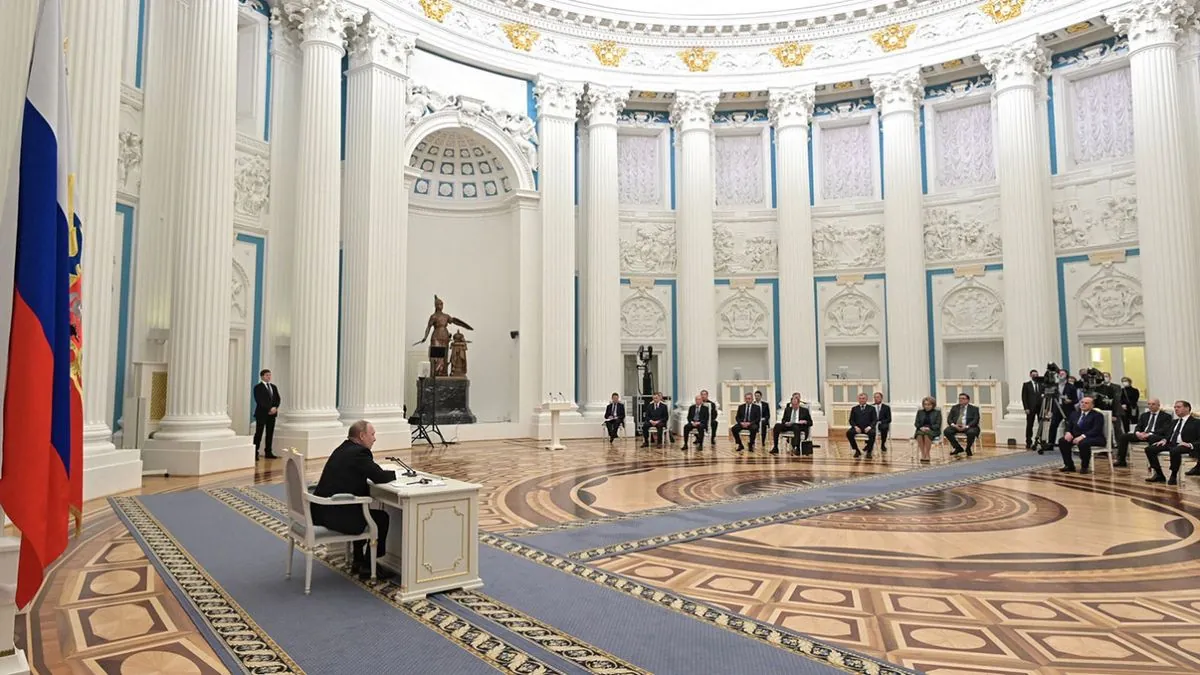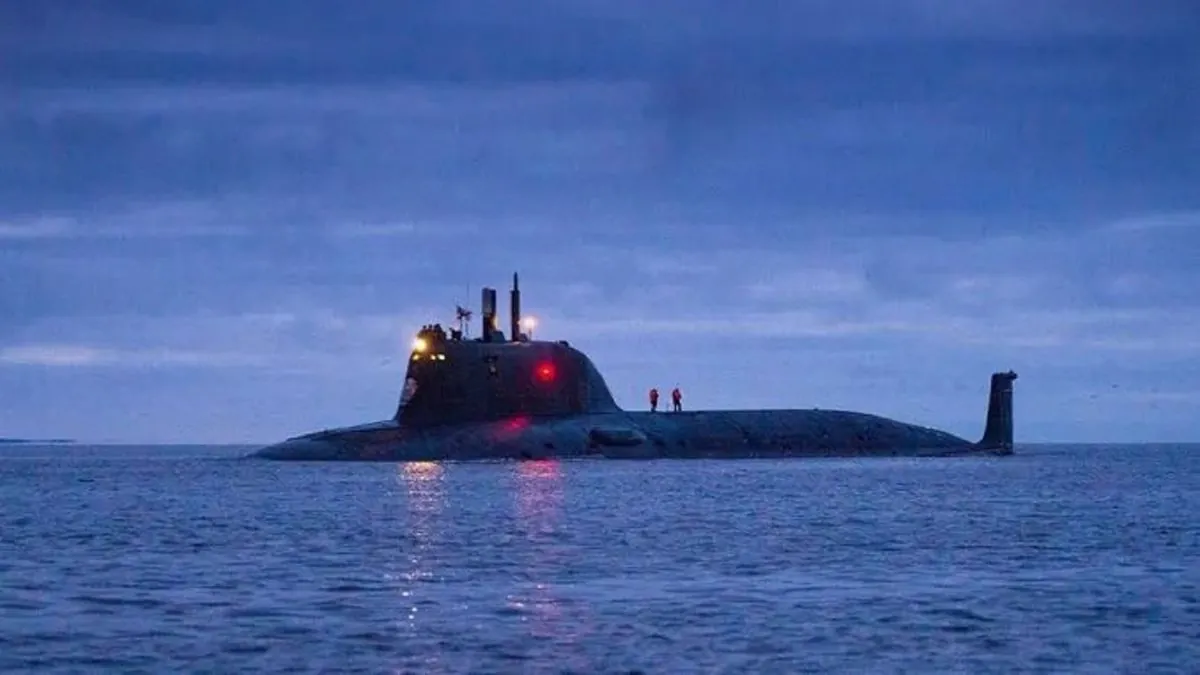Russia Revises Nuclear Doctrine, Warns West Against Supporting Ukraine
Russia modifies its nuclear policy, signaling potential consequences for Western support of Ukraine. The Kremlin aims to deter allies from backing attacks on Russian territory as the conflict enters its third year.

Russia has made significant alterations to its nuclear doctrine, a move aimed at discouraging Western nations from supporting Ukraine's military efforts against Russian territory. This development comes as the conflict between Russia and Ukraine enters its third year, with Russia making gradual progress on the battlefield.
Dmitry Peskov, the Kremlin spokesman, clarified that these changes serve as a cautionary message to countries considering involvement in attacks against Russia. The revised doctrine, announced by President Vladimir Putin, introduces a new perspective on what constitutes an attack on Russian soil.
Under the updated policy, Russia now considers any conventional attack supported by a nuclear power as a joint assault on the country. This modification appears to lower the threshold for potential nuclear weapon use, a strategy that has raised concerns among Western nations.

Putin emphasized that Russia could employ nuclear weapons in response to conventional attacks posing a "critical threat to our sovereignty." This vague formulation leaves room for interpretation, potentially encompassing a wider range of scenarios that could trigger a nuclear response.
"The revised doctrine spells out conditions for using nuclear weapons in greater detail, noting that they could be used in case of a massive air attack."
The changes in Russia's nuclear doctrine reflect the complex geopolitical landscape surrounding the ongoing conflict in Ukraine. As Russia continues to make slow but steady gains, the Kremlin seeks to deter stronger Western support for Kyiv.
Ukraine has been actively striking Russian territory with missiles and drones in retaliation for Moscow's attacks. President Volodymyr Zelenskyy has been urging the United States and other Western allies to permit the use of longer-range Western weapons for deep strikes inside Russian territory.
It's worth noting that Russia possesses the world's largest nuclear arsenal, with approximately 5,977 warheads as of 2022. The country's nuclear forces are divided into a triad: land-based ICBMs, submarine-launched ballistic missiles, and strategic bombers. This vast nuclear capability underscores the gravity of any changes to Russia's nuclear doctrine.
The concept of "escalate to de-escalate" has long been associated with Russian nuclear strategy. This approach involves the potential use of nuclear weapons to de-escalate a conventional conflict, a notion that has influenced Western perceptions of Russian military doctrine.
Russia's nuclear policy also includes the concept of "dead hand," an automatic nuclear retaliation system designed to ensure a response even if the country's leadership is incapacitated. This system, along with the Russian "nuclear briefcase" or "Cheget" that accompanies the President at all times, highlights the readiness of Russia's nuclear forces.
As tensions continue to escalate, the international community remains watchful of Russia's nuclear posture. The New START treaty between the US and Russia, which limits deployed strategic nuclear warheads to 1,550 for each country, serves as a crucial framework for nuclear arms control between the two nations.
The ongoing modernization of Russia's nuclear forces, including the development of new delivery systems like hypersonic missiles and nuclear-powered cruise missiles with potentially unlimited range, further complicates the strategic landscape.
As the conflict in Ukraine persists, the revised Russian nuclear doctrine serves as a stark reminder of the potential for escalation and the critical importance of diplomatic efforts to prevent further hostilities.


































